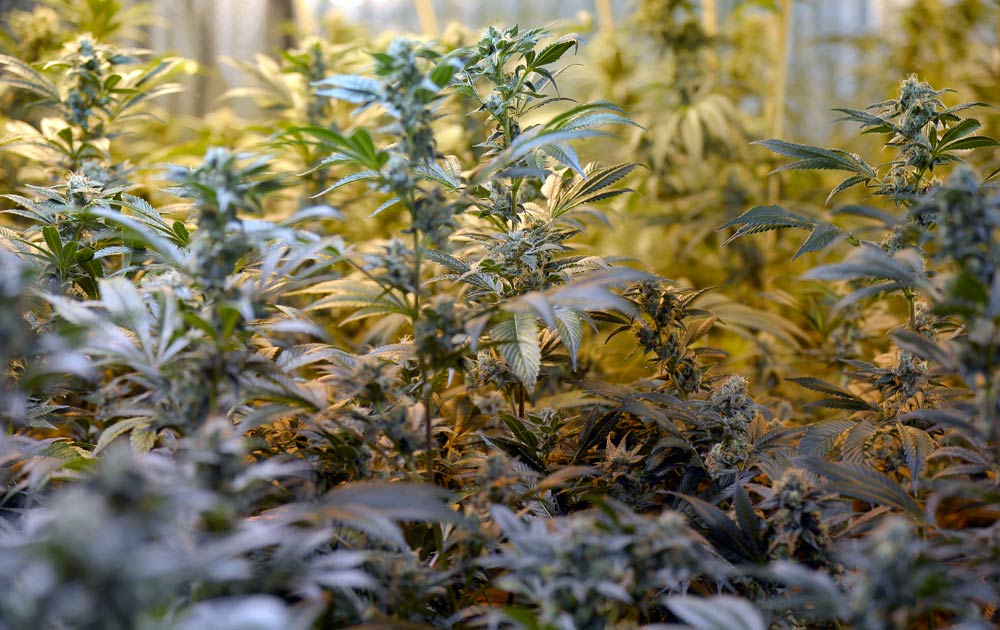
Editorial: Big holes in Colorado pot oversight with pesticides, MMJ
For all the work Colorado has done in creating the world’s first regulatory structure for legal marijuana sales, the effort is not finished.

For all the work Colorado has done in creating the world’s first regulatory structure for legal marijuana sales, the effort is not finished.
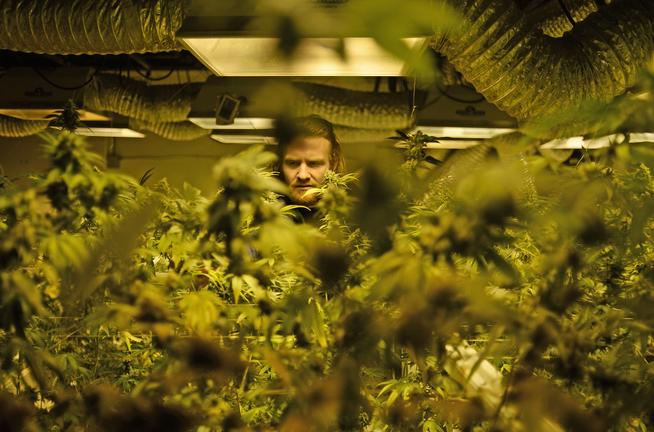
Colorado regulators have proposed rules that would further restrict which pesticides can be used to grow marijuana to those that are least harmful and are already allowed on crops intended for human consumption and tobacco.
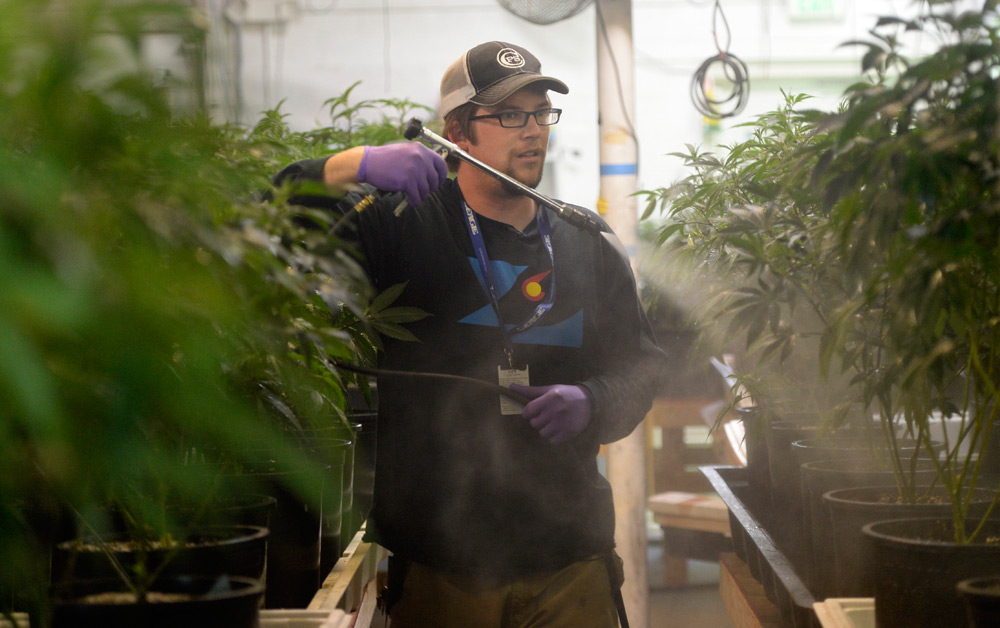
State regulators have known since 2012 that marijuana was grown with potentially dangerous pesticides, but pressure from the industry and lack of guidance from federal authorities delayed their efforts to enact regulations, and they ultimately landed on a less restrictive approach than originally envisioned.

Nearly two years into what Gov. John Hickenlooper called this “great social experiment” with marijuana, Colorado can no longer be given a pass on lack of enforcement with pesticide use.
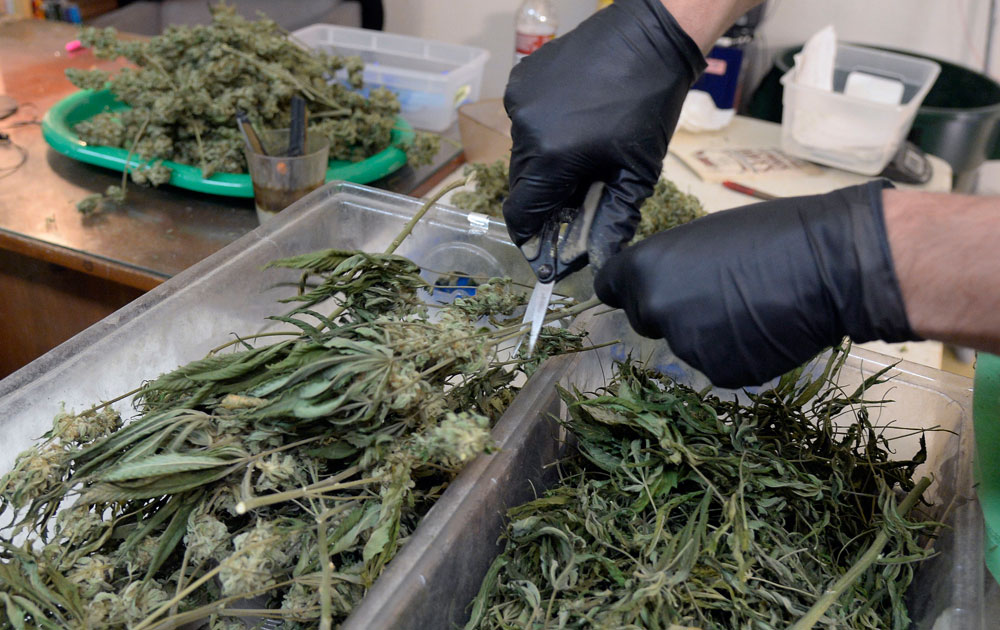
Owners of two Denver marijuana growing facilities on Friday said they were voluntarily recalling their products after city health officials learned tests found unapproved pesticides.
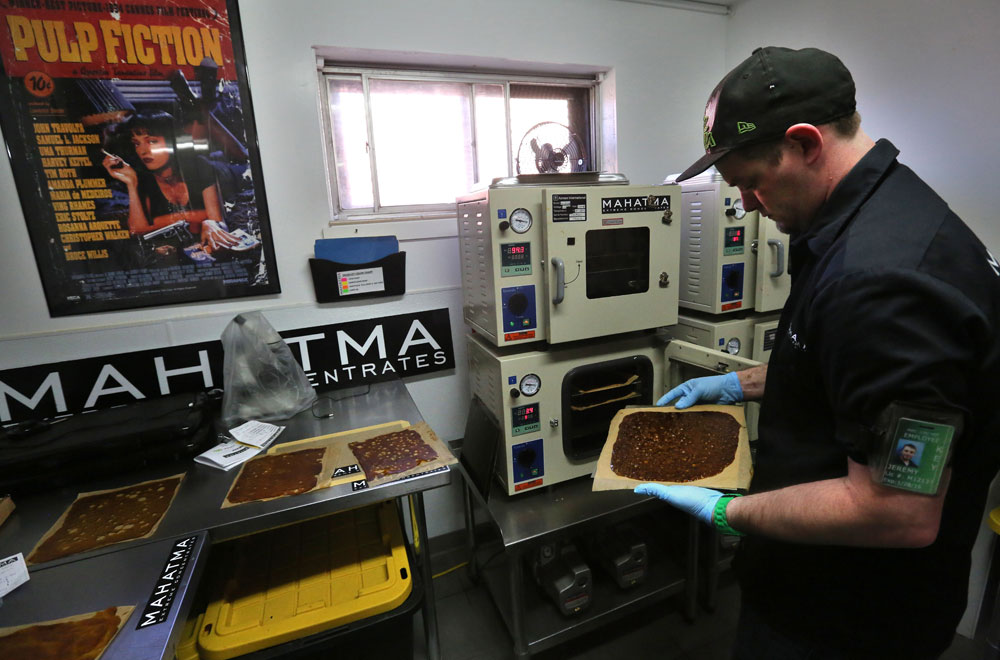
After Denver Post lab tests last week found residual amounts of non-approved pesticide chemicals in concentrated marijuana products made by Mahatma Concentrates, the Denver company has started to test the cannabis it takes in from other pot companies, according to Mahatma leadership.
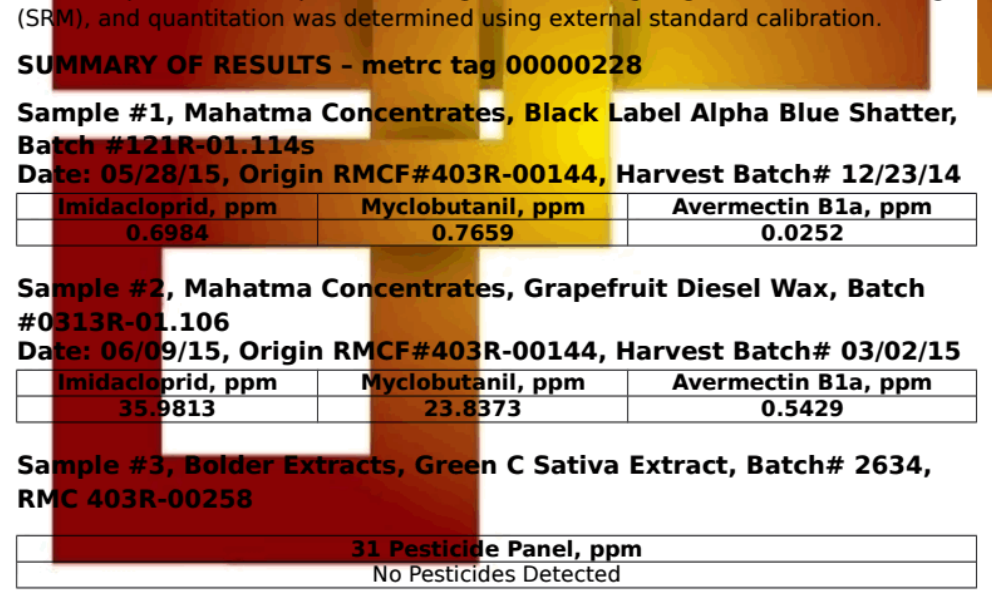
See the original test results from Colorado lab Gobi Analytical, which The Denver Post hired to conduct testing on marijuana products from Denver shops.
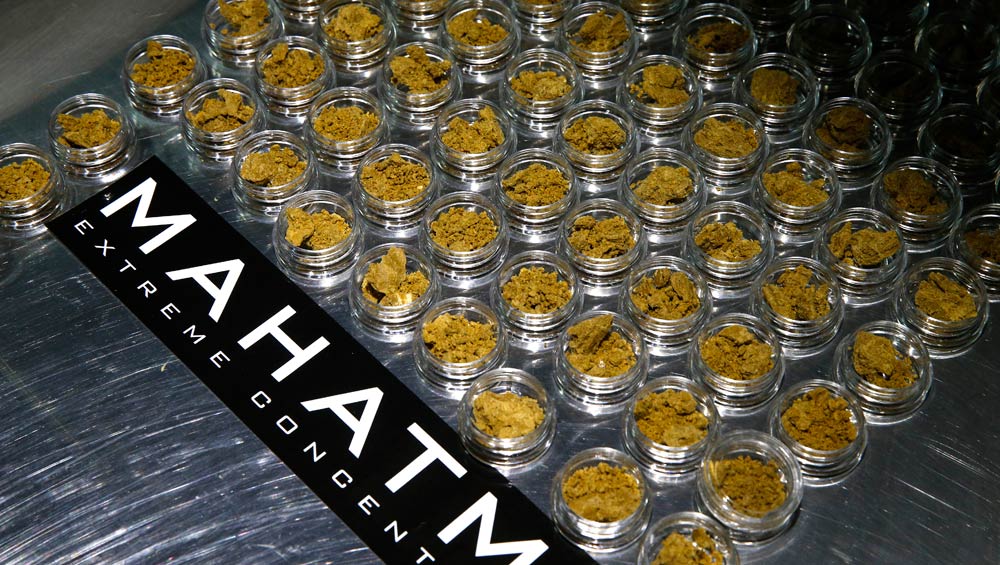
State and Denver inspectors on Tuesday ordered a recall of marijuana extracts sold by Mahatma Concentrates that The Denver Post revealed contained high levels of unapproved pesticides.
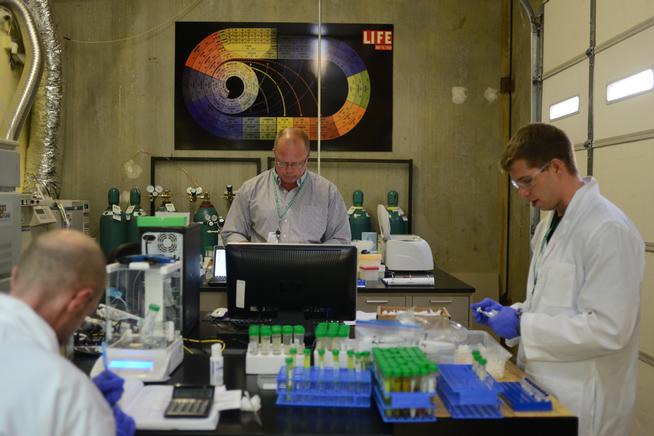
Nearly six months after the city of Denver began a crackdown on unapproved pesticides in marijuana products, a spot-check by The Denver Post found that the chemicals were still being sold to consumers.
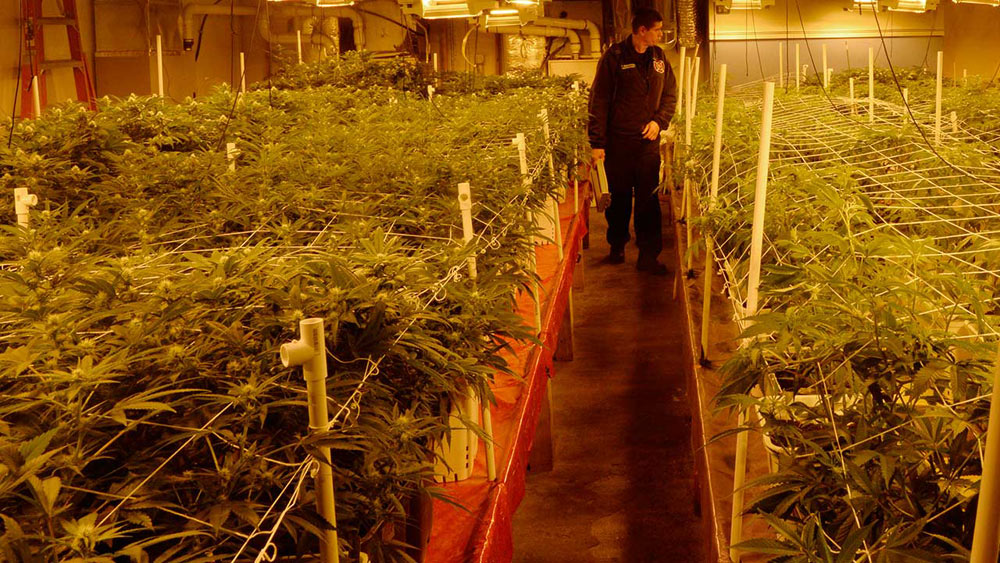
Marijuana pesticides: Is it possible for pesticides to be eliminated from commercial grows? A discussion about Colorado’s pot industry and consumer views.
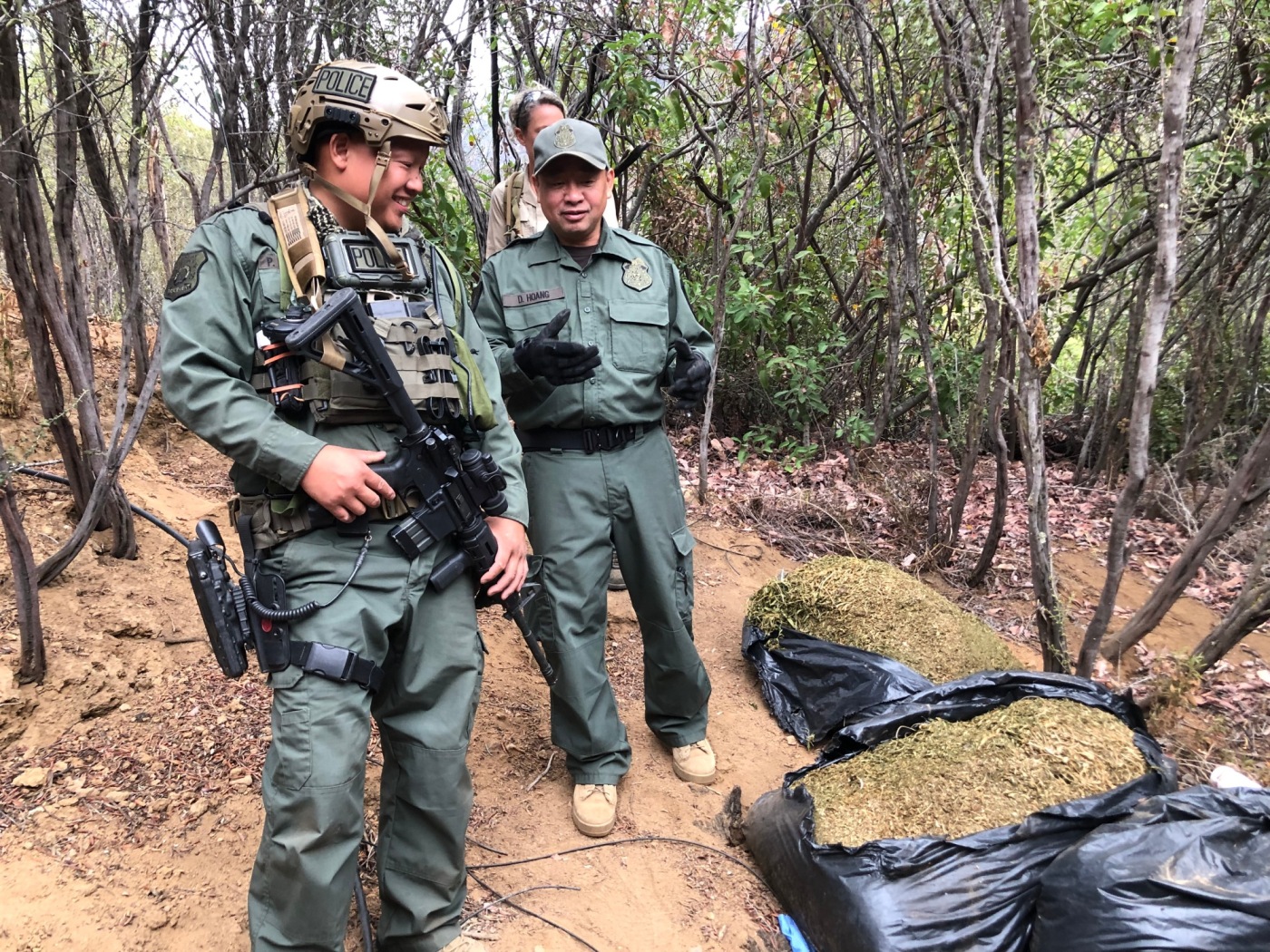
“It’s a huge public health risk,” says an official dedicated to the environmental cleanup of illicit marijuana operations throughout the state.
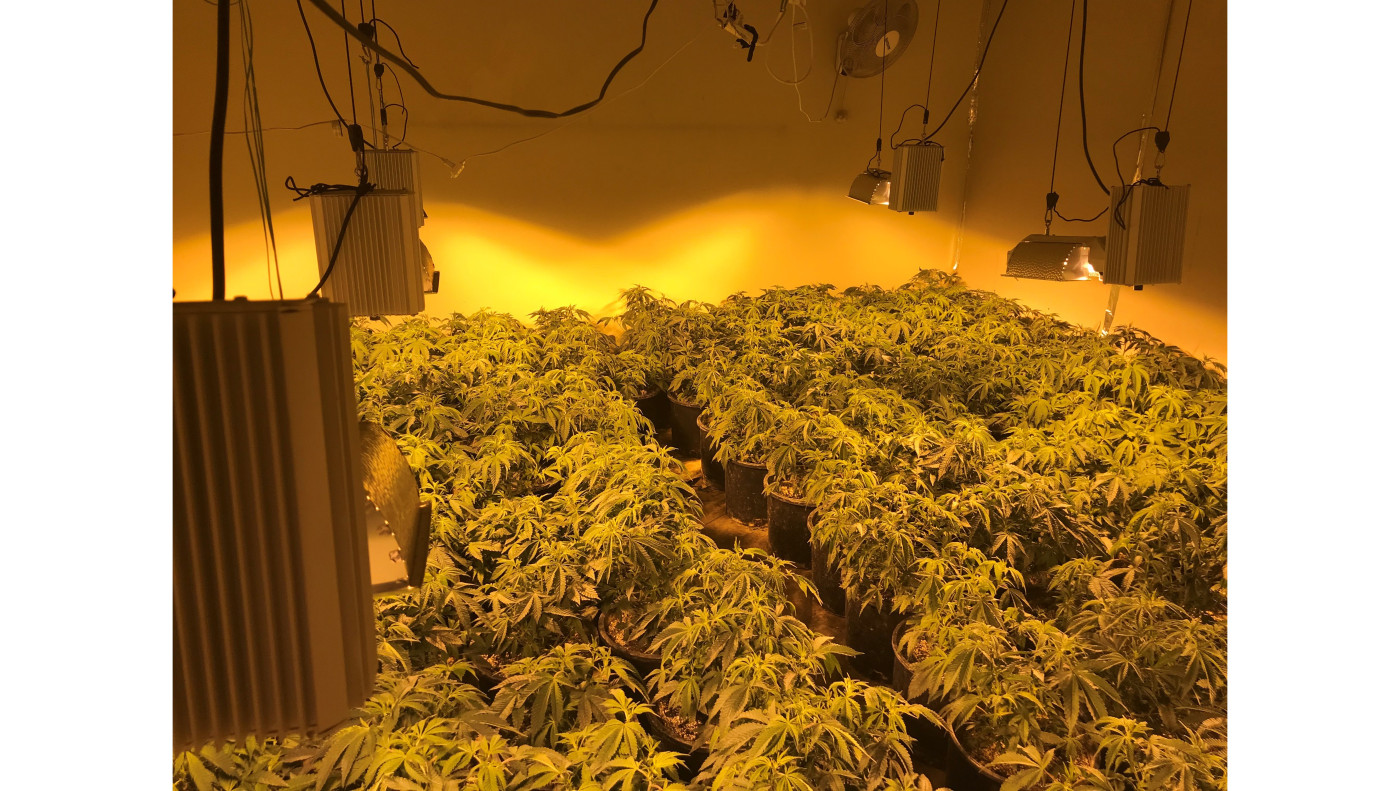
Illegal cultivation sites — loaded with trash, banned pesticides such as carbofuran, methyl parathion, aluminum phosphate, and illegal fertilizers — discharge large quantities of these harmful products into the state’s waterways, officials say.
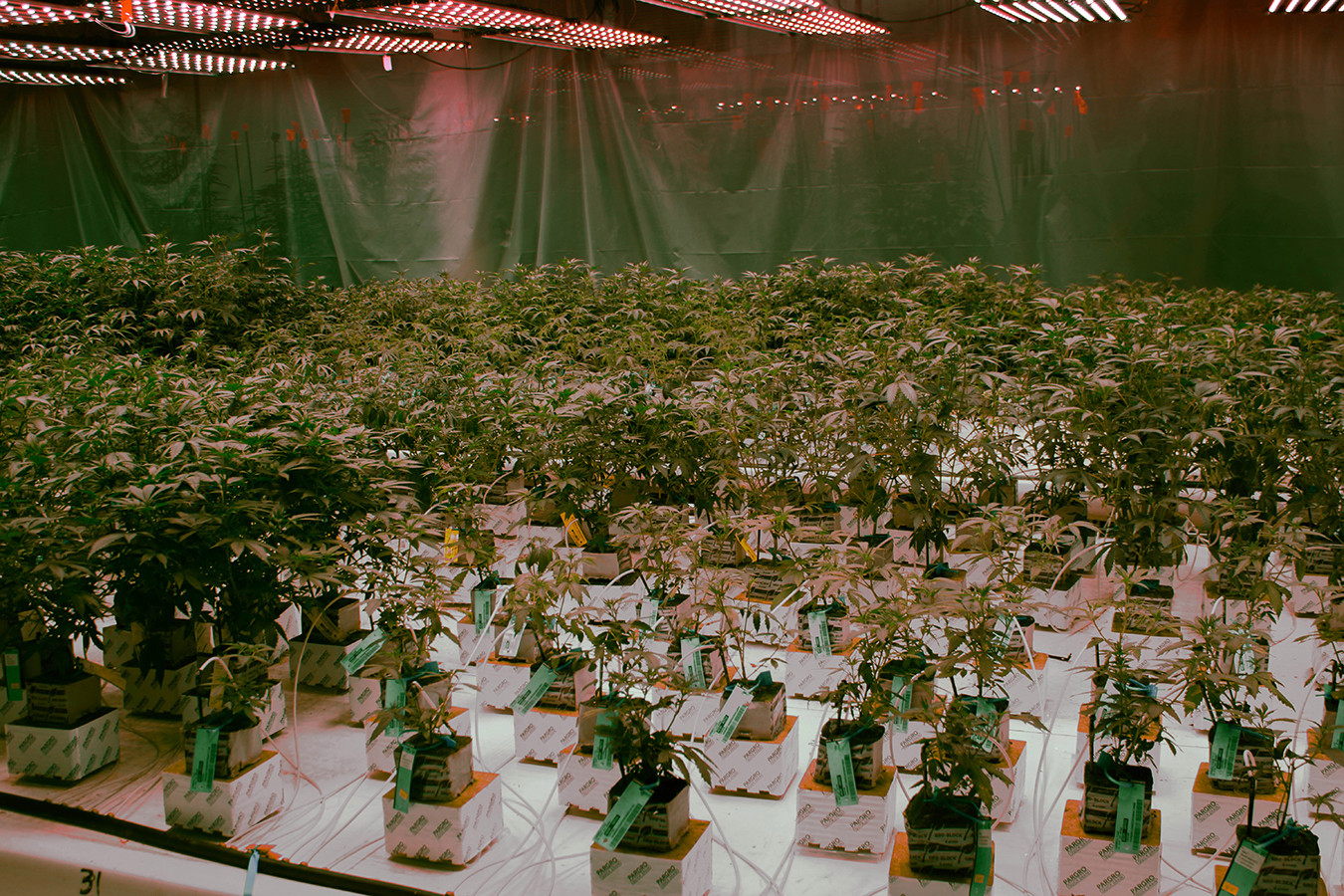
American marijuana has a reputation for being the best in the world. But the federal prohibition on marijuana makes shipments across state lines or overseas a pipe dream.
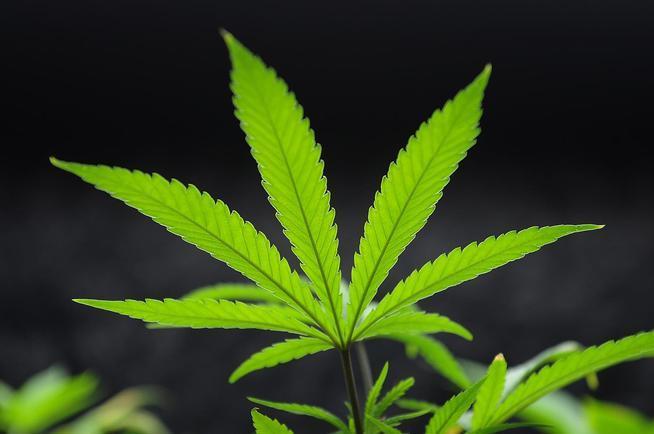
The Colorado Department of Revenue has issued a safety and health advisory after potentially unsafe pesticide residues were found on certain medical marijuana plant material and products.
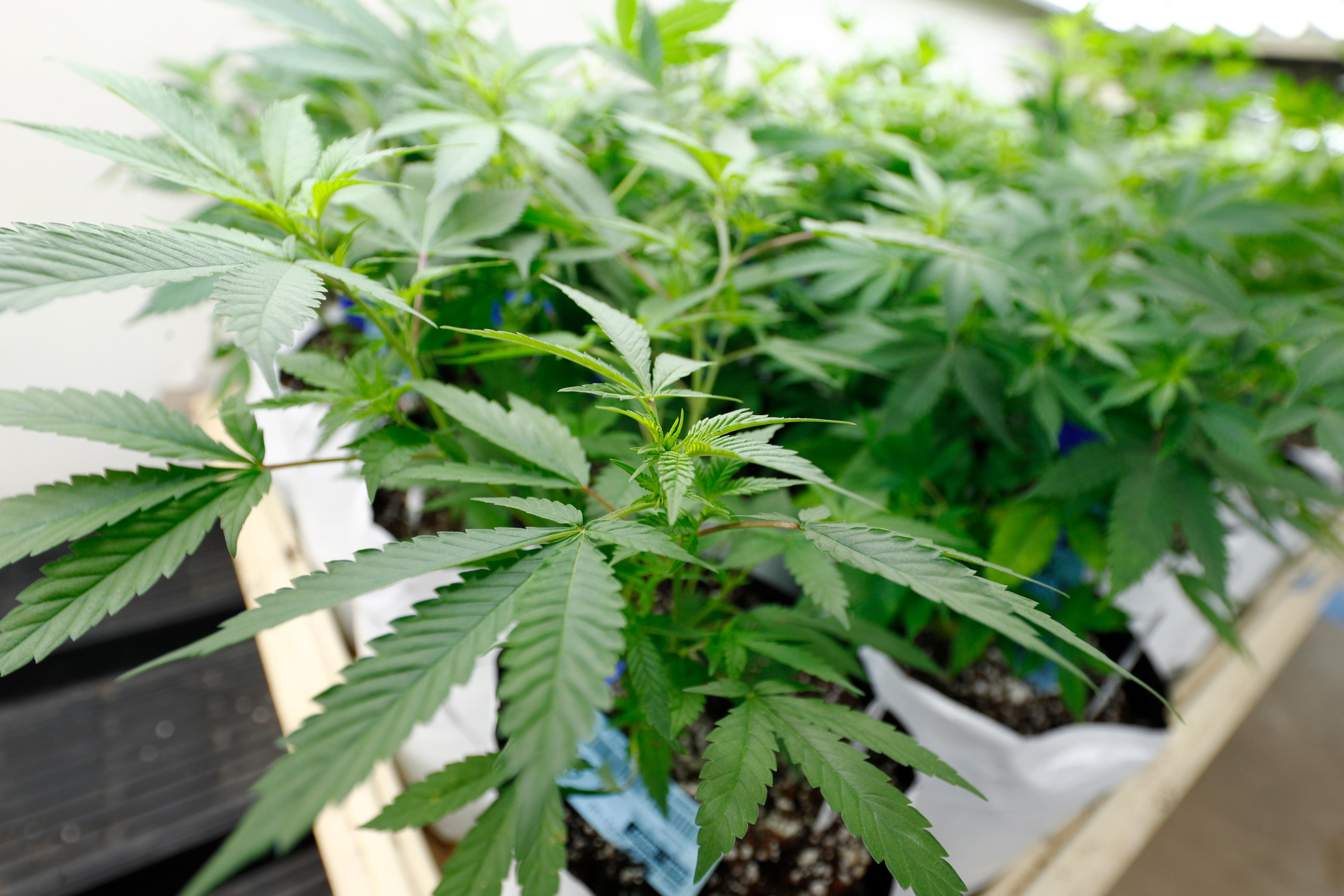
Colorado Gov. John Hickenlooper [cq comment=”cq”]issued an executive order along with a health and safety advisory Wednesday warning people not to use marijuana cultivated by Colorado Wellness Centers [cq comment=”cq”]because the company used unapproved pesticides.
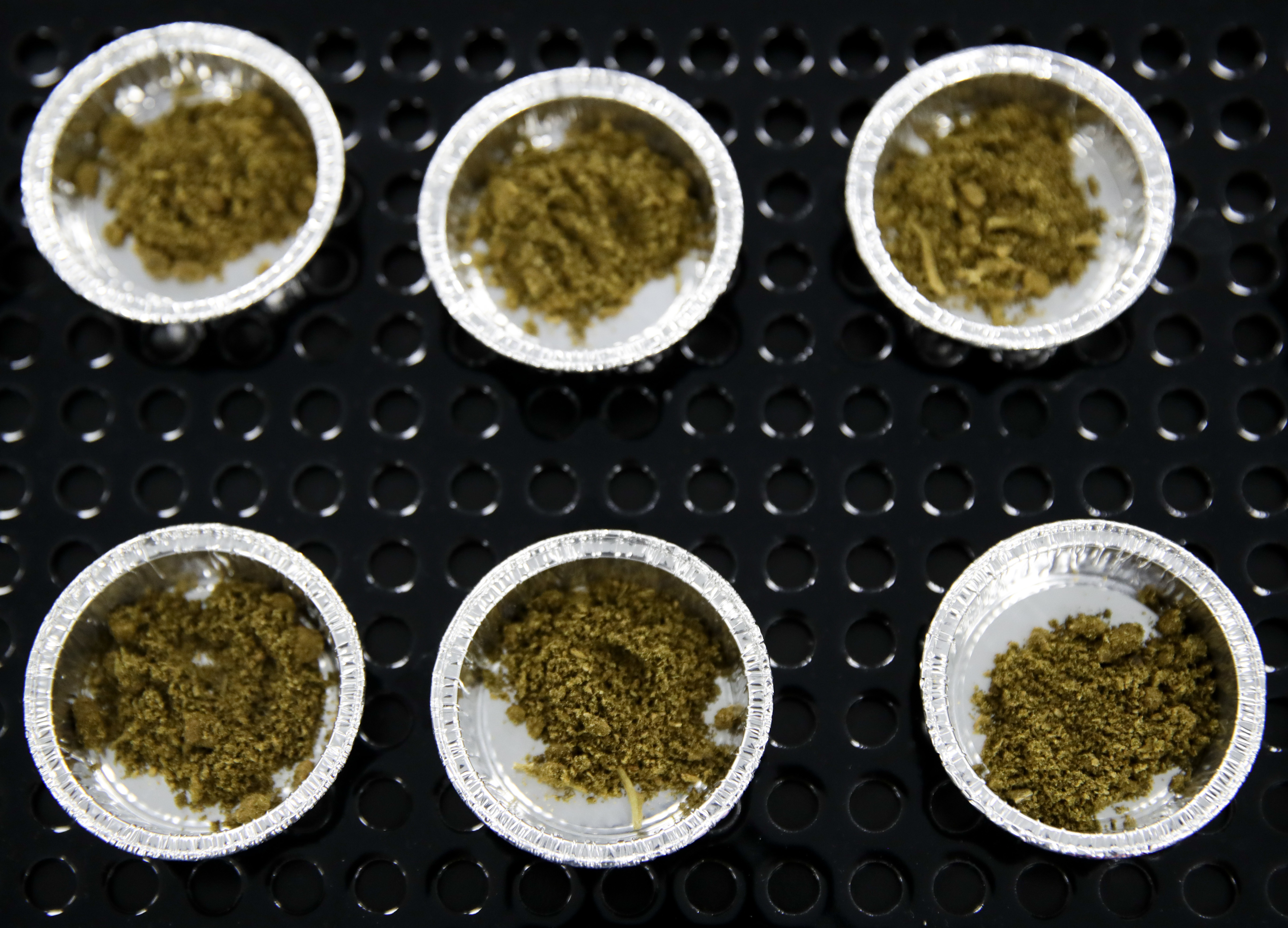
Nearly 20 percent of marijuana products in California have failed tests for potency and purity since the state started requiring the checks on July 1, a failure rate some in the industry say has more to do with unrealistic standards and technical glitches than protecting consumer safety.

Eco-activists worry that semi-legal and illegal marijuana grows may undermine the environmental activism that has long fought to preserve the redwoods as a natural resource.

The study found that in rats, the same physiological effect occurs after inhaling secondhand smoke from marijuana as with cigarettes. And, the arteries take 90 minutes to recover compared with the 30 minutes with cigarette smoke.

A task force studying issues surrounding marijuana legalization in Delaware voted to release its final report in a chaotic meeting.
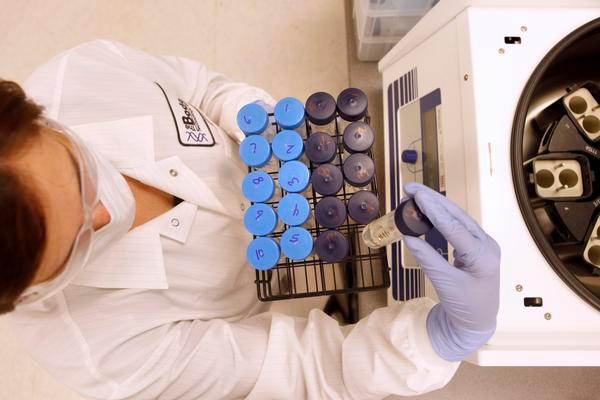
North Dakota’s Health Department on Wednesday began accepting proposals from laboratory companies that want to test medical marijuana in the state.

One month after the start of recreational marijuana sales, Lori Ajax, chief of the state Bureau of Cannabis Control, gave an assessment of the state’s performance.
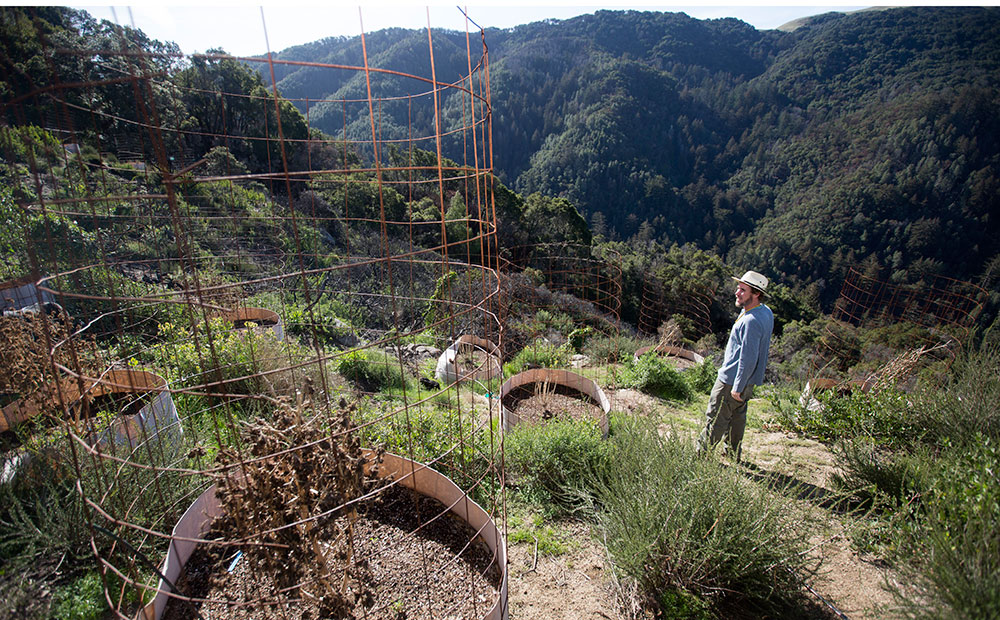
The fate of farmers in Big Sur — the birthplace of legendary “Big Sur Holy Weed” in the Golden State’s storied cannabis culture — remains more precarious than ever.

Oregon’s top federal prosecutor convened a marijuana summit Friday to hear how state leaders plan to address the black market.

Cannabis dispensaries and others are concerned that too few operators have been licensed to support a pipeline of growers, distributors and retailers.

At Harborside dispensary in Oakland, founder Steve DeAngelo used a giant pair of scissors to cut a green ribbon, declaring, “With these scissors I dub thee free,” before ringing up the first customer at a cash register.